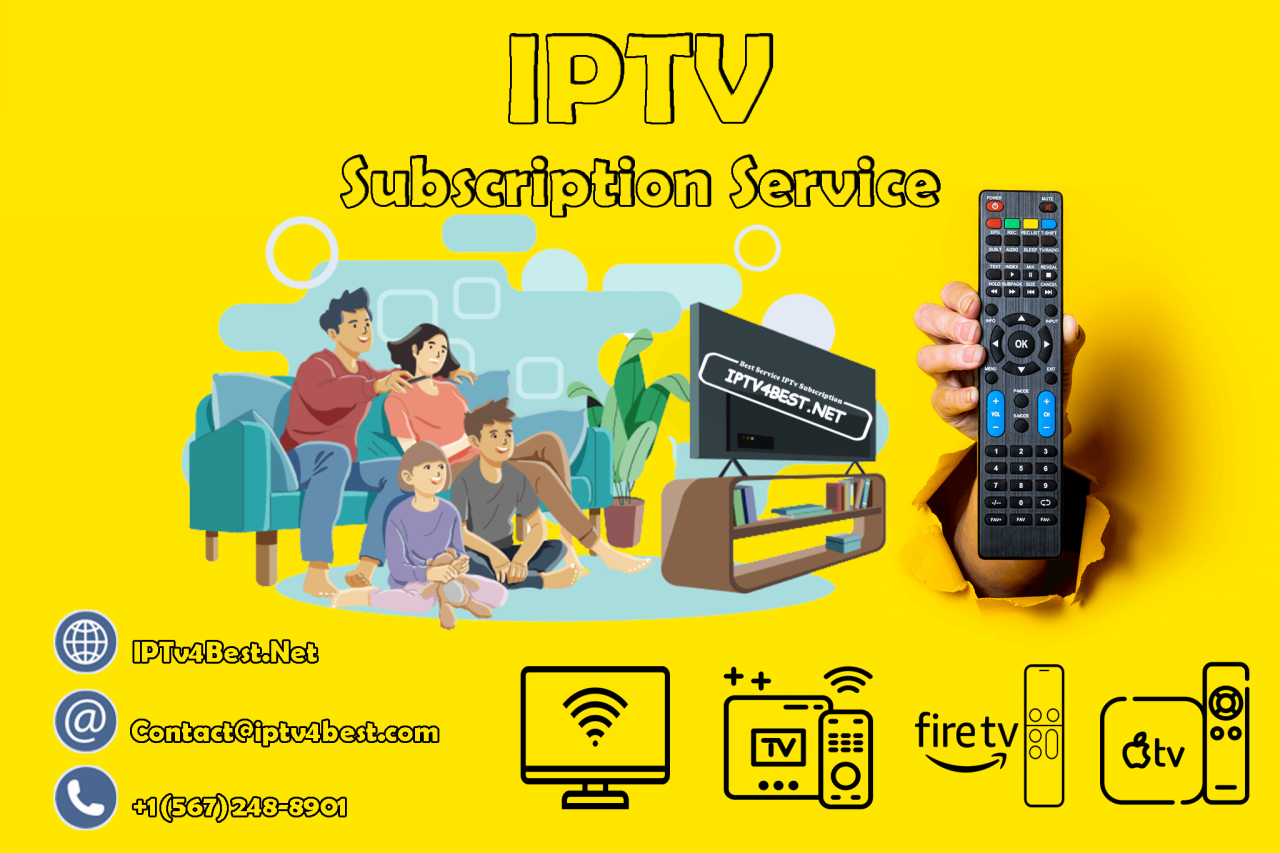In recent years, the way we consume television has undergone a dramatic transformation, shifting from traditional cable and satellite services to the more internet-based options offered by IPTV premium services. With the growing appetite for diverse content and flexibility in viewing options, IPTV has emerged as a popular choice for millions of viewers around the world. This service allows users to stream live television and on-demand content over the internet, offering an alternative that caters to modern viewing habits.
As with any service, there are both advantages and disadvantages to consider when it comes to IPTV premium options. On one hand, users benefit from a wide variety of channels, affordable pricing plans, and the convenience of accessing their favorite shows from multiple devices. However, potential downsides such as internet dependency, variable streaming quality, and legal concerns can make potential subscribers think twice. In this article, we will explore the pros and cons of IPTV premium services to help you make an informed decision about whether this option is right for you.
Benefits of IPTV Premium Services
IPTV premium services offer a wide variety of channels and content that traditional cable and satellite providers often cannot match. Subscribers gain access to numerous international channels, niche programming, and on-demand movies and series. This extensive library allows users to tailor their viewing experiences to their personal preferences, ensuring that there is always something enjoyable to watch.
One of the key advantages of IPTV premium services is the flexibility they provide. Unlike iptv premium , which operates on fixed schedules, IPTV services often allow viewers to watch programs whenever they choose. Many services include features such as catch-up TV and the ability to pause and rewind live broadcasts. This makes it easier for users to manage their viewing around their own schedules, a significant benefit for those with busy lifestyles.
Additionally, IPTV premium services often come with enhanced picture quality and streaming capabilities. With the advent of high-definition and even 4K streaming options, viewers can enjoy a superior visual experience. This quality is complemented by the potential for multi-device accessibility, allowing users to watch their favorite shows on smartphones, tablets, or smart TVs. This convenience is a strong motivator for many subscribers to choose IPTV as their primary entertainment source.
Drawbacks of IPTV Premium Services
One of the primary drawbacks of IPTV premium services is their reliance on a stable internet connection. Unlike traditional cable or satellite services, which can deliver content through dedicated infrastructure, IPTV requires a strong and consistent internet connection to stream high-quality video. If the internet speed is inadequate or if interruptions occur, users may experience buffering, degraded video quality, or even service outages, leading to frustration during viewing.
Another significant concern is the legality and legitimacy of various IPTV premium services. Many providers operate in a gray area, offering content that may infringe on copyright laws. This can pose risks for consumers, including potential legal repercussions or the abrupt discontinuation of services when a provider is shut down. Users must carefully research and choose reputable services to avoid these pitfalls.

Moreover, IPTV premium services can sometimes lack the comprehensive channel offerings found in traditional cable packages. While many services boast extensive on-demand libraries, they may not include all channels or specific regional programming, which can be a disappointment for subscribers looking for niche content or local broadcasts. This can lead to a feeling of missing out on desirable channels that are otherwise available through conventional providers.
Comparing IPTV with Traditional TV
IPTV premium services offer a marked contrast to traditional television formats. With traditional TV, content delivery is largely dependent on cable or satellite systems, which can involve geographical limitations and signal issues. In contrast, IPTV leverages internet connectivity, allowing users to stream content directly to their devices. This means that as long as there is a reliable internet connection, viewers can access a wider variety of programming from virtually anywhere, breaking free from the constraints of location-bound broadcasting.
Another significant difference lies in the viewing flexibility that IPTV provides. Traditional TV often adheres to a fixed schedule, where viewers must plan around showtimes. IPTV, on the other hand, offers features such as on-demand viewing and the ability to pause, rewind, or fast-forward content. This convenience allows users to consume media at their own pace, catering to the growing preference for binge-watching and personalized viewing experiences that traditional TV cannot match.
Finally, the cost structure of IPTV services can be more appealing to consumers compared to traditional television. While cable and satellite packages often involve hidden fees, long-term contracts, and bundled services that may not be of interest, IPTV allows for greater transparency. Users can choose from various subscription models without the pressure of lengthy commitments, often resulting in a tailored experience that reflects individual preferences and budget constraints. This shift towards flexibility and choice is reshaping how viewers approach their entertainment consumption.
